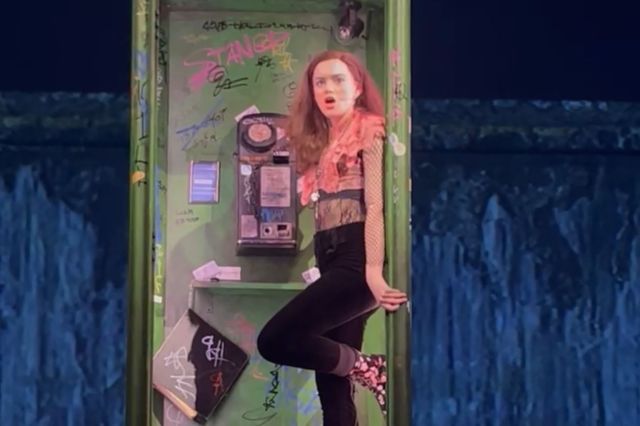The Dazzle (FOUND111)
The UK premiere of Richard Greenberg’s play is brought to life in the former Central St Martins building
American writer Richard Greenberg's extraordinary play is about two men who he knew very little about. He admits as much in the programme notes. The Collyer brothers were found – or at least their decomposing corpses were found – in 1947 in their family home in New York, a home that had been absolutely rammed full of stuff. It took a team of people weeks to clear their hoard – books, instruments, newspapers. And it is from this posthumous view of the Collyers that Greenberg looks back. He fictionalises, mainly, what their lives could have been, inspired by the possibilities of how on earth two men could have got to such a sorry state.
Greenberg picks up with them in their youth, when Langley – played by Sherlock star Andrew Scott – is a pianist of some fame. He is also an eccentric and insufferably pedantic about both language and music. Homer (played by David Dawson) is his accountant brother, who is obliged – perhaps only through a sense of brotherly love, perhaps because his brother is how they make a living – to look after the 'artist' Langley who struggles to do anything for himself. The play is set entirely in a small room with a grand piano – relatively uncluttered to begin with – but as the story unfolds the room begins to cramp with crap. Over the course of the piece, Milly Ashmore – played by an excellent and beautifully poised Joanna Vanderham – enters into their world, almost marrying Langley, then much later almost marrying Homer, before they are left alone, hidden from society, dirty and dying, surrounded by the trinkets they have accumulated throughout their lives.
Scott excels in playing oddballs: there's been Moriarty, Max Denbeigh in Spectre and Paul in Birdland at the Royal Court. Here he's superb as Langley, he seems driven by an off-kilter rhythm or melody that nobody else can hear. He bellows and bursts out his words, playing the pauses and sudden revelations for laughs. But it is Dawson who manages to tap in to both the humour and the tragedy in The Dazzle. As Homer, Dawson is upbeat one minute, frustrated the next. He is constantly let down by his brother but he manages to betray, imperceptibly at times, the immovable but unexplainable fact that he will never be able to part from him. The final scene is poignant, and it is Dawson's work that makes it so.
In the script, the two brothers – much like the actors – barely need words, they seem so in tune with each other. It's a haunting study of familial love and mental breakdown written with a startling precision and wit by Greenberg, who has Langley and Homer speaking a kind of stylised, hyper-realistic dialogue. It is a fluid, beautiful play with moments of clarity amid bundles of strange thoughts. "She's the enzyme in your presence," one of the brothers says about Milly – a summary of their relationship in one short line. The play is full of these.
Director Simon Evans keeps the action tightly claustrophobic in the new space FOUND111, with Ben Stones' designs featuring furniture and bric-a-brac piled around the stage. It makes you feel like a voyeur, perching on a box of books, looking into the junk-filled world of the Collyers. And it is a fascinating world to watch unravel.
The Dazzle runs at FOUND111 until 30 January.













